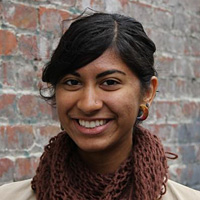I'm the last person anyone would expect to march in the streets. I'm just not that political. But as my first semester started last fall, amidst the chemistry lectures and literature discussions, UC Berkeley began to mobilize.
UC Regents had proposed a 32 percent tuition increase across the entire system. And though still wary of the political extremism Berkeley is known for, I found myself attending lectures, teach-ins and discussions. I needed to understand how the tuition hike would affect my life as a prospective medical student. And ultimately I realized how damaging education cuts would be for everyone in California.
In the fall I hung a picket sign on my dorm room door, and wore the red wrist band which came to symbolize the fight against budget cuts. And most of all, I talked to my friends about why I was getting involved. I didn't want people passing this off as just another Berkeley protest.
When spring came, I took an art history class focused on the French Revolution. Inspired by the societal change accomplished by French citizens, I dug deeper. And on March 4th I joined my professor and fellow students to rally in front of the state Capitol in Sacramento.
Now five months later, I wish I could say that I'm still following the budgetary process, but I'm not. Without student leaders organizing events, I hardly even discuss what's happening. And it's not just me. The storm which enveloped UC Berkeley last September, by June, had blown over completely. It left behind a complacent campus with students like me commuting to our summer classes, and tour groups snapping pictures of Wheeler Hall as guides tell them about last fall's sit-in.
